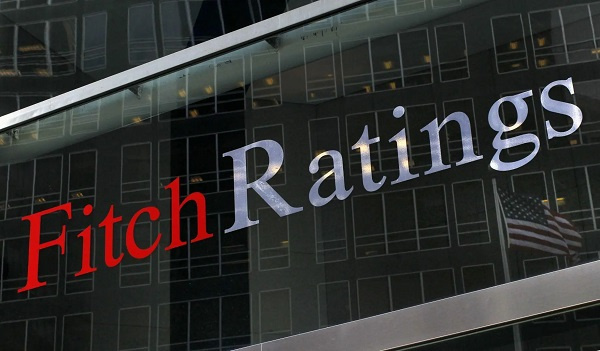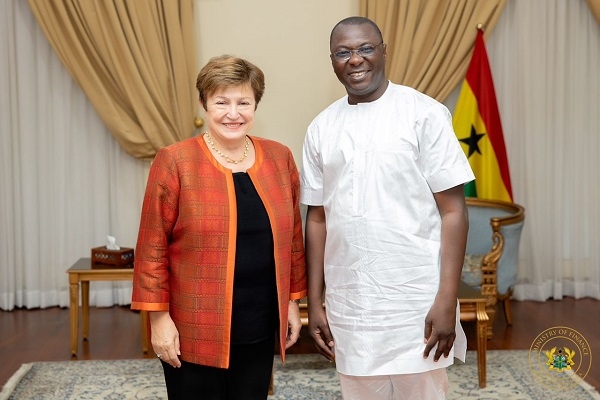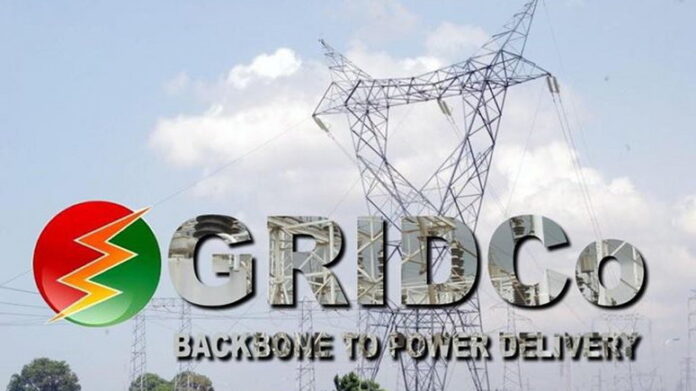FULL TEXT: Fitch downgrades Ghana’s creditworthiness to deeper junk status

A full list of rating actions is at the end of this rating action commentary.
Key Rating Drivers
Local Currency Debt Restructuring Confirmed: The downgrade of Ghana’s local-currency denominated debt follows the completion of a domestic debt exchange offer by the Republic of Ghana. This transaction is an element of the recovery programme for which the government is seeking the support of the IMF. On Dec. 12, 2022, Ghana and the IMF reached a Staff-Level Agreement on a three-year arrangement under the Extended Credit Facility (ECF) of about USD3 billion.
Material Reduction in Terms: All holders, except pension funds, of 67 eligible bonds governed by Ghanaian law and denominated in Ghanaian Cedis (GHS) were invited to exchange their holdings into new bonds with the same aggregate principal amount, plus applicable capitalized accrued and unpaid interest, which have in the aggregate a lower average coupon and extended average maturity than the old bonds.
Collective investment schemes and individual holders below the age of 59 will receive bonds maturing in 2027 and 2028 with a 10% coupon. Individual holders aged 59 or older will receive bonds maturing in 2027 and 2028 with a 15% coupon.
All other participating holders will receive a set of bonds with maturity dates ranging from 2027 to 2033 in exchange of bonds maturing in 2023, and a set of bonds with maturity dates ranging from 2027 to 2038 in exchange of bonds maturing after 2023.
All these bonds will pay a 5% cash coupon and a paid-in-kind coupon of 3.35% to 5.00% until Feb. 13, 2025, and cash coupons ranging from 8.35% to 10.00%, depending on the specific series, from Feb. 14, 2025.
Distressed LC Debt Exchange: In Fitch’s view, this debt exchange constitutes a distressed debt exchange under the agency’s criteria, given this material reduction in terms vis-à-vis the original contractual terms, and given that the exchange is needed to avoid a traditional payment default.
According to Fitch’s sovereign rating criteria, a ‘RD’ rating is consequently assigned to the Long-Term Local Currency Issuer Default Rating. Among the 67 eligible bonds that could be tendered, six are rated by Fitch. A ‘D’ rating has been assigned to these six bonds.
Missed LC Principal Payment: A GHS4.2 trillion principal payment was due on Feb. 6, 2023. In the second amended and restated exchange memorandum released on Feb. 7, authorities announced that eligible holders holding this bond would not receive a final interest payment and a final principal payment, regardless of whether an eligible holder has tendered or not.
In a press release issued on Feb. 14, 2023, authorities announced that coupon payments and maturing principals would be honoured “in line with Government fiscal commitments.” This announcement does not clarify yet when the payment will be made to holders who opted out of the domestic debt exchange.
In particular, it does not clarify whether a principal payment will be made before the expiration of the grace period for this specific issue. This security is one of the six issues that have been downgraded to ‘D’.
Interest Payments to Be Significantly Reduced in 2023: Outstanding principal of eligible bonds amounts to GHS132.4 billion (22% of 2022 estimated GDP). Assuming an 80% participation rate equally distributed among eligible bonds and eligible bondholders, the domestic debt exchange would allow Ghana to reduce its interest payments by 1.5 to 2.0 percentage points of GDP in 2023, not considering the cost, in 2023, of rolling over bonds that would have matured in 2023.
Foreign-Currency Debt Not Affected: Fitch downgraded the Long-Term Foreign Currency Issuer Default Ratings (IDR) to ‘C’ from ‘CC’ on Dec. 21, 2022 following the government’s announcement of a suspension of payments on selected external debt.
Ghana subsequently asked official creditors for a restructuring of its external debt under the G20 Common Framework. A Eurobond coupon payment, due on Jan. 18, 2023, has not been honoured. Fitch has affirmed the LT FC IDR at ‘C’ but will downgrade it to ‘RD’ after the end of the grace period for this coupon payment that expires on Feb. 17, 2023.
Partially Guaranteed Notes Not Affected: Fitch downgraded the issue rating on Ghana’s U.S. dollar-denominated notes due October 2030 to ‘CC’ from ‘B-‘ on Dec. 21, 2022. The notes benefit from a partial credit guarantee (PCG) backed by the International Development Association for scheduled debt service payments up to 40% of the original principal.
Fitch had assigned a multiple-notch uplift to the notes to reflect its view that the PCG reduces the bonds’ potential for default and increases the possible recovery in the event of issuer default. The ‘CC’ rating for the partially guaranteed U.S. dollar-denominated notes due October 2030 has been affirmed.
ESG – Governance: Ghana has an ESG Relevance Score (RS) of ‘5’ for both Political Stability and Rights and for the Rule of Law, Institutional and Regulatory Quality and Control of Corruption. These scores reflect the high weight that the World Bank Governance Indicators (WBGI) have in our proprietary Sovereign Rating Model.
Ghana has a medium WBGI ranking at 50.8, reflecting a recent track record of peaceful political transitions, a moderate level of rights for participation in the political process, moderate institutional capacity, established rule of law and a moderate level of corruption.
ESG – Creditor Rights: Ghana has an ESG Relevance Score (RS) of ‘5’ for Creditor Rights as willingness to service and repay debt is highly relevant to the rating and is a key rating driver with a high weight. The current rating action reflects Fitch’s view that Ghana is in default.
RATING SENSITIVITIES
Factors that could, individually or collectively, lead to negative rating action/downgrade:
–Failure to make scheduled coupon or maturity payments on Ghana’s foreign-currency bonds within the grace period would lead to a downgrade of Ghana’s LT FC IDR to ‘RD’;
–The partially guaranteed notes could be downgraded depending on the evolution of the debt restructuring;
–Failure to honour interest and principal payment on maturing bonds to holders who opted out of the debt exchange during the grace period could result in a prolonged ‘RD’ LT LC IDR.
Factors that could, individually or collectively, lead to positive rating action/upgrade:
–Following the completion of the domestic debt exchange, Fitch will assign Ghana’s Long-Term Local-Currency Issuer Default Rating based on a forward-looking assessment of its willingness and capacity to honour its local currency debt;
–Once Ghana reaches an agreement with private creditors on the restructuring of its foreign currency-denominated debt and completes that restructuring process following the Common Framework official creditors’ claims treatment, Fitch will assign a Long-Term Foreign-Currency Issuer Default Rating based on a forward-looking assessment of its willingness and capacity to honour its foreign-currency debt;
–Evidence that the partially-guaranteed notes will be excluded from the external debt restructuring could lead to an upgrade of the issue rating on the partially guaranteed notes.
Sovereign Rating Model (SRM) and Qualitative Overlay (QO)
Fitch’s proprietary SRM assigns Ghana a score equivalent to a rating of ‘B-‘ on the Long-Term Foreign-Currency IDR scale. However, in accordance with its rating criteria, Fitch’s sovereign rating committee has not utilized the SRM and QO to explain the ratings in this instance. Ratings of ‘CCC+’ and below are instead guided by the rating definitions.
Fitch’s SRM is the agency’s proprietary multiple regression rating model that employs 18 variables based on three-year centred averages, including one year of forecasts, to produce a score equivalent to a LT FC IDR.
Fitch’s QO is a forward-looking qualitative framework designed to allow for adjustment to the SRM output to assign the final rating, reflecting factors within our criteria that are not fully quantifiable and/or not fully reflected in the SRM.
Best/Worst Case Rating Scenario
International scale credit ratings of Sovereigns, Public Finance and Infrastructure issuers have a best-case rating upgrade scenario (defined as the 99th percentile of rating transitions, measured in a positive direction) of three notches over a three-year rating horizon; and a worst-case rating downgrade scenario (defined as the 99th percentile of rating transitions, measured in a negative direction) of three notches over three years. The complete span of best- and worst-case scenario credit ratings for all rating categories ranges from ‘AAA’ to ‘D’.
Best- and worst-case scenario credit ratings are based on historical performance. For more information about the methodology used to determine sector-specific best- and worst-case scenario credit ratings, visit https://www.fitchratings.com/site/re/10111579.
REFERENCES FOR SUBSTANTIALLY MATERIAL SOURCE CITED AS KEY DRIVER OF RATING
The principal sources of information used in the analysis are described in the Applicable Criteria.
ESG Considerations
Ghana has an ESG Relevance Score of ‘5’ for Political Stability and Rights as World Bank Governance Indicators have the highest weight in Fitch’s SRM and are therefore highly relevant to the rating and a key rating driver with a high weight. As Ghana has a percentile rank above 50 for the respective Governance Indicator, this has a positive impact on the credit profile.
Ghana has an ESG Relevance Score of ‘5’ for Rule of Law, Institutional & Regulatory Quality and Control of Corruption as World Bank Governance Indicators have the highest weight in Fitch’s SRM and are therefore highly relevant to the rating and are a key rating driver with a high weight. As Ghana has a percentile rank above 50 for the respective Governance Indicators, this has a positive impact on the credit profile.
Ghana has an ESG Relevance Score of ‘5’ for Creditor Rights, as willingness to service and repay debt is highly relevant to the rating and is a key rating driver with a high weight. The distressed debt exchange reflected in the ‘RD’ LT LC IDR has a negative impact on the credit profile.
Ghana has an ESG Relevance Score of ‘4[+]’for Human Rights and Political Freedoms as the Voice and Accountability pillar of the World Bank Governance Indicators is relevant to the rating and a rating driver. As Ghana has a percentile rank above 50 for the respective Governance Indicator, this has a positive impact on the credit profile.

Except for the matters discussed above, the highest level of ESG credit relevance, if present, is a score of 3. This means ESG issues are credit-neutral or have only a minimal credit impact on the entity, either due to their nature or to the way in which they are being managed by the entity.
Source: www.ghanaweb.com





